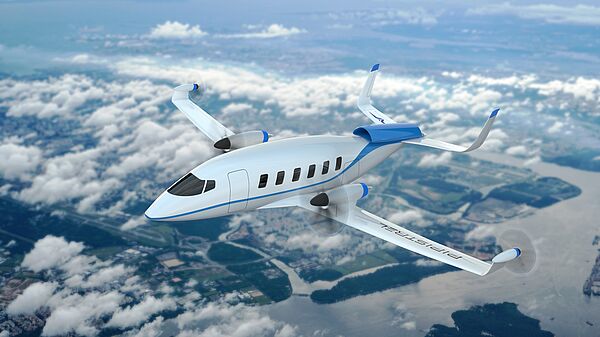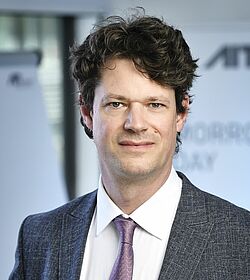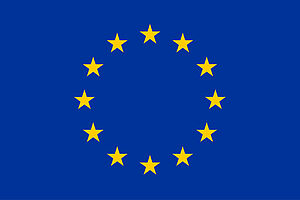Aviation is at the center of the climate debate. An international study by the International Energy Agency (IEA) shows that flying is responsible for around 2 percent of global CO2 emissions. Despite temporary declines due to the coronavirus crisis, air traffic remains one of the fastest-growing transport sectors, which highlights the urgent need for action on its environmental impact. Aviation is therefore called upon to actively contribute to achieving the climate neutrality targets set out in the European Green Deal by 2050.
A shift from conventional, fossil fuel-based propulsion systems to electric propulsion solutions is also taking place in aviation. The aim is to increase energy efficiency and switch to renewable energy sources in order to minimize the environmental impact of the next generation of aircraft – all the way to the complete decarbonization of air traffic. The AIT Austrian Institute of Technology is supporting this development by providing technological solutions for hybrid electric aircraft.
Energy storage systems that meet the requirements of aeronautics play a central role in the electrification of aircraft. This requires batteries with a high energy density that also meet the highest safety standards. Innovative solid-state batteries made of active materials with high energy density and solid, non-flammable electrolyte have these properties. Solid-state batteries are currently being developed mainly for automotive applications, but their actual market launch is not expected for several years.
A promising approach is now being pursued by a European consortium led by AIT in the MATISSE project, which is being funded by the European Commission as part of Horizon Europe. The aim is to develop multifunctional structural components with an integrated semi-solid-state battery for aeronautical applications in order to make solid-state batteries a viable technology for the next generation of (hybrid) electric aircraft.
MATISSE will:
- advance Li-ion battery cell technology, in a non-conventional formulation suitable for bearing structural loads: NMC811 (cathode), Si/C (anode) and polymer-ionic quasi-solid-state electrolyte with improved structural capabilities, achieving 170-270 Wh/kg at cell level – integrated into solid CFRP laminates enabling 500+ Wh per kg added weight – more than doubling the specific energy of today’s modules with monofunctional batteries;
- enable the functional integration of Li-ion cells into solid laminate and sandwich composite structures;
- make the structural battery smart, by equipping it with on-cell and in-structure sensors, connected to a chip-based CMU (Cell Monitoring Unit) and PLC (Power Line Communication).
MATISSE delivers a multifunctional structure demonstrator capable of power delivery, power management and safety monitoring. This consists of a full-scale wing tip (1.42 m × 0.69 m) for use in place of the current wingtip assembly installed on Pipistrel Velis Electro, embedding a module of 40 battery cells at 72 VDC. This will undergo a comprehensive testing and characterisation campaign, qualifying the technology at TRL 4 at the end of the project (2025). MATISSE will also encompass aspects related to flight certification, life-cycle sustainability and virtual scale-up, paving the way towards the application of structural batteries as an improved performance key enabling technology for next generation commuter and regional hybrid electric aircraft applications.
Dr. Helmut Kühnelt, researcher at AIT and MATISSE coordinator, emphasizes: "The road to climate-neutral aviation is just beginning. As with the previous SOLIFLY project, MATISSE will provide support to the European aviation industry in the spirit of the Green Deal with pioneering battery technologies to launch hybrid-electric short- and medium-haul aircraft and thus make a significant contribution to achieving the Paris climate targets."
Project partners
ONERA, The French Aerospace Lab
CIRA – Italian Aerospace Research Centre
KIT – Karlsruher Institut für Technologie





